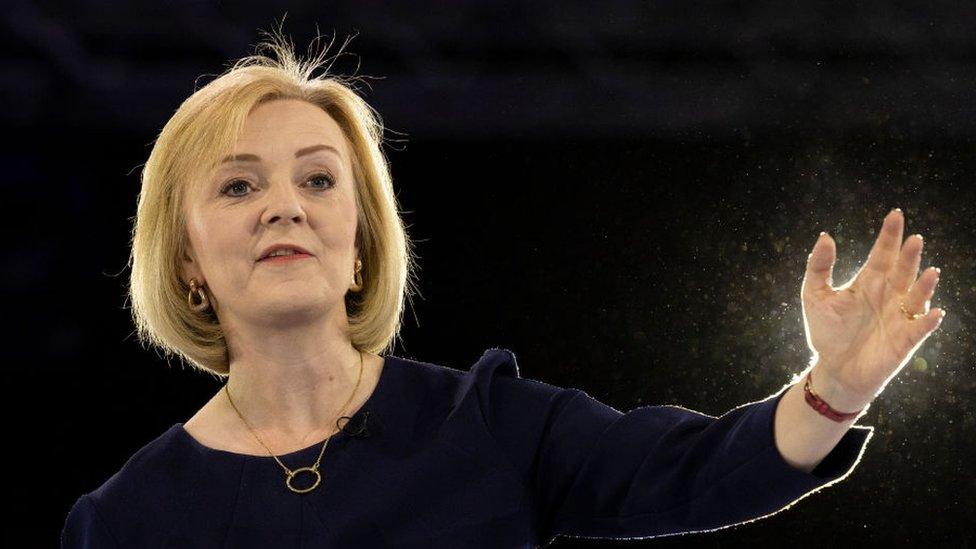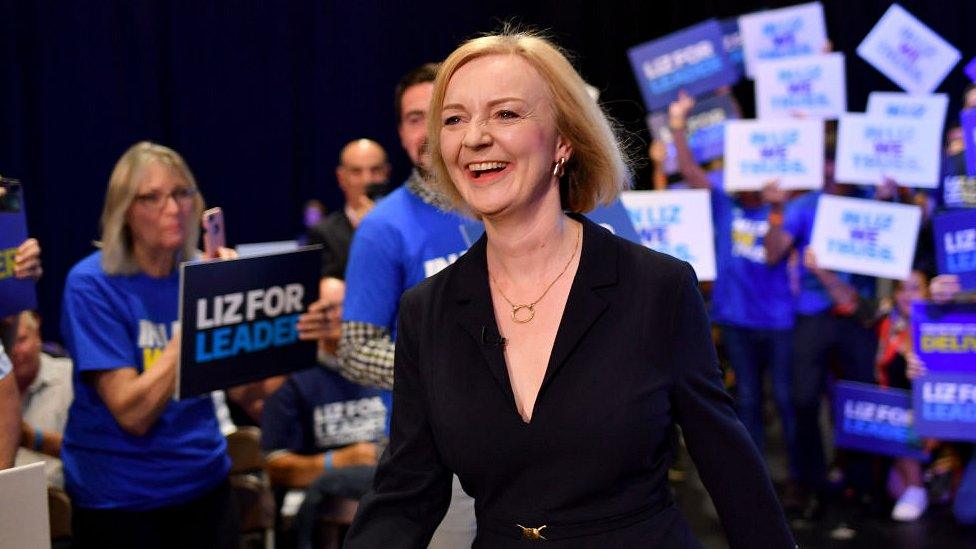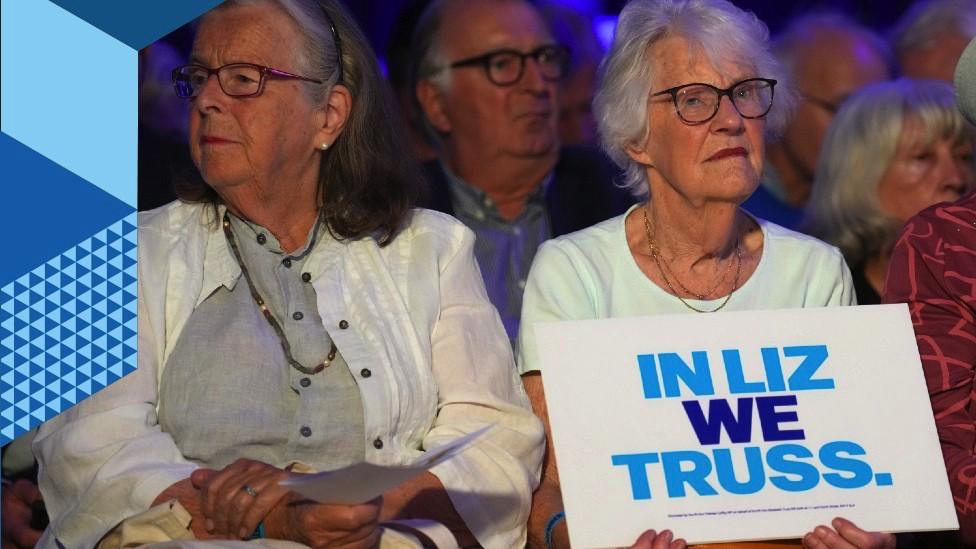Chris Mason: No honeymoon period for next PM Liz Truss
- Published
- comments

Elation, smiles, success, the crowning moment of a political career.
Liz Truss has risen from the obscurity and loneliness of being an opposition councillor on a Labour-dominated local authority, to the biggest job of them all.
There is more than a smidgen of ambition splashing around Westminster, and more than a few around here allow themselves to dream of becoming prime minister.
For Liz Truss, that ambition becomes reality tomorrow.
I first came across her 13 years ago when I was a political reporter for BBC Radio 5 Live.
She served on Greenwich Council, in south-east London, and fought an unwinnable parliamentary seat in the 2001 general election. At the 2005 general election, she came a distant second in a Labour-leaning marginal. Yet ahead of the 2010 general election, she had become the Conservative candidate for a safe Tory seat, South West Norfolk.
But all hell broke loose when an affair she had had with then Conservative MP Mark Field was exposed.
Political survivor
It became the basis of a tussle between David Cameron's modernising zeal and his desire to reshape the image of the party, and local activists who felt emasculated and hoodwinked.
But Liz Truss was to prove, as she has done repeatedly since, that she is a political survivor. She emerged from that skirmish to become a Conservative MP, and now rises to be prime minister having been a minister for a decade.
One long-standing former Greenwich councillor recalled to me that back in her town hall days Liz Truss was notably quiet during full council meetings, but got stuck into her committee work.
She has talked about it quite pointedly - telling the ConservativeHome website that being on the council's planning committee amounted to "hours of my life I will never get back", external.
But these apprenticeships for high office are admired by her supporters, and helped her relate to the voluntary party in a way Rishi Sunak simply couldn't.
He was never a councillor and landed the plum Conservative seat of Richmond, in the Yorkshire Dales, without having to try to persuade the unpersuadable in seats glued to their Labour loyalties.
Perhaps their contrasting CVs go some way to explaining their very different approaches to the campaign: Liz Truss relishing the scrap, Rishi Sunak appearing more hesitant at times - and at others more uncomfortable - to get stuck into the noisier, sometimes grubbier side of politics.

But elation and back stories only get you to now. Liz Truss is confronted by the gargantuan task of government.
Things will feel different. Very different. They are bound to - Boris Johnson was the very definition of a primary colours, performance prime minister. But she inherits the same challenges he was confronted by.
Governing when millions are confronted by unpayable bills. Governing during a war in Europe and in the aftermath of a pandemic. And governing a party that's already been in power for 12 years.
As I reported yesterday, we can expect to see Chancellor Kwasi Kwarteng, Home Secretary Suella Braverman and Foreign Secretary James Cleverly - but these appointments won't be announced until tomorrow, when Ms Truss formally takes office.
Then there will be Prime Minister's Question Time, on Wednesday.
The Labour leader Sir Keir Starmer's team are well aware of not making the same mistake - as they saw it - as Rishi Sunak did in his BBC debate with Liz Truss in late July, when he was accused of "mansplaining".
They are hopeful that Sir Keir's experience of taking on Lisa Nandy and Rebecca Long Bailey, during the Labour leadership contest, proves he can be effective in debate without being accused of patronising.
We can expect an announcement from the new government on help with energy bills within days, likely on Thursday.
There will be very little if any honeymoon period for Liz Truss, as the country clamours for answers to huge questions the caretaker government of Boris Johnson in recent months felt unempowered to take on.
As you can read from my colleagues, there is inflation, Ukraine, energy security, the NHS with winter approaching, the contrails of Brexit and... a general election that isn't far away.
The Conservatives have consistently been some way behind Labour in the polls all year. And there has to be an election by January 2025 at the latest.
Politics is being reset, but it will continue to be competitive, noisy and unpredictable.
While many things change, some never do.
- Published5 September 2022
